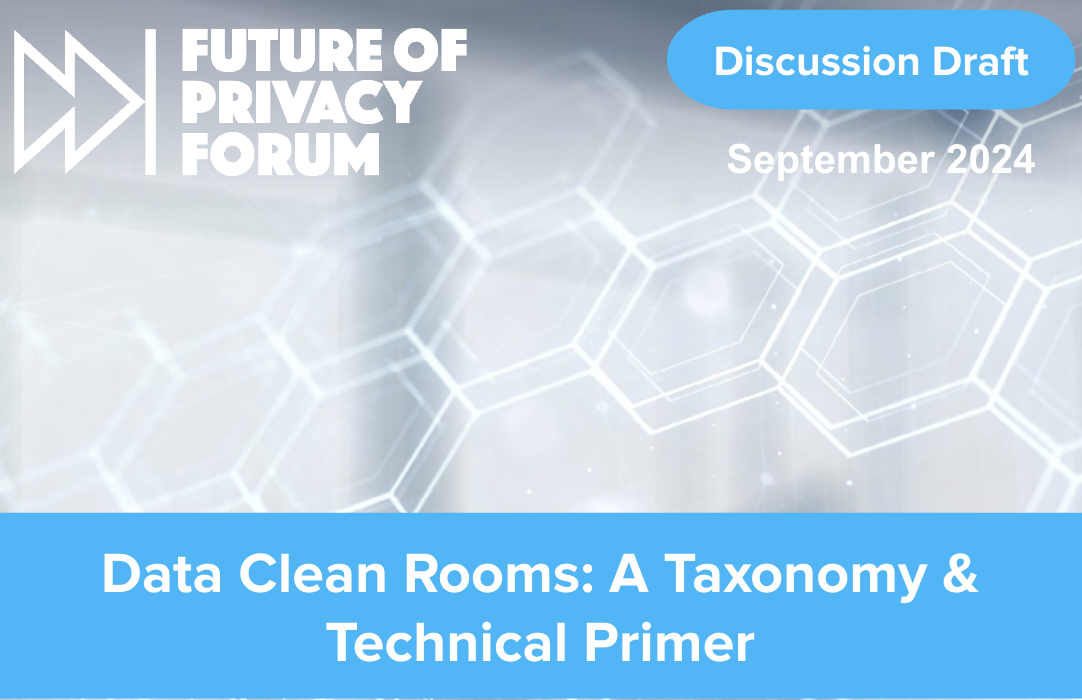
Comment Submitted To The FCC On AI Call Detecting, Alerting, And Blocking Technologies
The Future of Privacy Forum (FPF) submitted comments in response to the Federal Communications Commission’s (FCC, or Commission) Notice of Inquiry (NOI) on technologies that can alert consumers that they may be interacting with an AI-generated call based on real-time phone call content analysis.

Human,Use,Smartphone,With,Incoming,Call,From,Unknown,Number,,Spam,
human,use,smartphone,with,incoming,call,from,unknown,number,,spam,

33b73133-f14c-4a85-84c3-22c01c839bd2
1350 Eye Street NW , Suite 350, W ashington, DC 20005 | 202-768-8950 | fpf.or g Filed online at fcc.gov/ ecfs October 10, 2024 Marlene H. Dortch Secretary Federal Communications Commission Of fice of the Secretary 45 L Street NE W ashington, DC 20554 Re: Implications of Artificial Intelligence T echnologies on Pr otecting Consumers […]

Out, Not Outed: Privacy for Sexual Health, Orientations, and Gender Identities
Co-authored by: Judy Wang (FPF Intern), Jeter Sison (FPF Intern), Jordan Wrigley (FPF Data and Policy Analyst, Health & Wellness) On National Coming Out Day, it’s important to recognize that Coming Out is a right of passage for many LGBTQ+ individuals and a decision that they should be empowered to make for themselves. Protections for […]

Ed_AI_legal_compliance.pdf_(FInal_OCT24)
YOUTH & EDUCATION Vetting Generative AI Tools for Use in Schools David Sallay, Future of Privacy Forum, April 2024 POLICY BRIEF A U T H O R E D B Y D avid S allay D irector for Youth & Education P rivacy A C K N O W L E D G E M […]

FPF Submits Comments to Inform New York Children’s Privacy Rulemaking Processes
At the end of the 2024 legislative session, New York State passed a pair of bills aimed at creating heightened protections for children and teens online. One, the New York Child Data Protection Act (NYCDPA), applies to a broad range of online services that are “primarily directed to children.” The NYCDPA creates novel substantive data […]

FPF-Sponsorship Prospectus-24-25-R7
SPONSORSHIP PROSPECTUS 2024–2025 FPF SPONSORSHIP PROSPECTUS | 1 Please contact Alyssa Rosinski at [email protected] for more information. Why choose to sponsor with FPF? ❱ FPF brand associated with global thought leadership ❱ Access to senior-level privacy professionals with purchasing influence and authority ❱ Receive international visibility within the data protection and privacy community ❱ Ability […]

FPF Sponsorship Prospectus 2024 -2025 DC Privacy Forum
Sponsorship Levels and Deliverables

FPF-Sponsorship Prospectus-24-25-R7 (1)
SPONSORSHIP PROSPECTUS 2024–2025 FPF SPONSORSHIP PROSPECTUS | 1 Please contact Alyssa Rosinski at [email protected] for more information. Why choose to sponsor with FPF? ❱ FPF brand associated with global thought leadership ❱ Access to senior-level privacy professionals with purchasing influence and authority ❱ Receive international visibility within the data protection and privacy community ❱ Ability […]

Data Clean Rooms: A Taxonomy & Technical Primer Discussion Draft
Data clean rooms are an increasingly discussed tool in industry, utilized in advertising and marketing, health care, and academic research, as well as for regulatory compliance. Leading thinkers have already started to analyze the capabilities of data clean rooms, including the challenges that they could address, as well as the challenges that their use may […]
